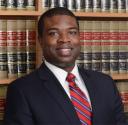 A Queens, New York, elder law attorney who was a candidate in the recent Democratic primary for a State Senate seat directed more than $40,000 in campaign funds to his own law firm. Although the payments are legal under New York’s election laws, they are raising questions about why the attorney ran for office in the first place.
A Queens, New York, elder law attorney who was a candidate in the recent Democratic primary for a State Senate seat directed more than $40,000 in campaign funds to his own law firm. Although the payments are legal under New York’s election laws, they are raising questions about why the attorney ran for office in the first place.
Munir Avery, whose campaign website said his practice “centers on guiding clients through the process of structuring their assets and resources in order to provide for themselves and their loved ones in the event of incapacitation,” was one of two challengers for the state Senate seat of incumbent Malcolm A. Smith, who himself ran despite facing trial on bribery charges. Avery came in last with 12 percent of the vote, polling less than Smith, who finished second.
But before and after the campaign, about half of the $80,000 in campaign money Avery raised went to his own law firm. “The campaign hired The Law office of Munir Avery for its experience in the legal compliance consulting field,” Avery said in a statement quoted by The New York Observer. “If you look at the amount every other campaign spends for these services," the statement went on, "you will find this fee to be quite affordable and in sync with the industry as a whole . . . The campaign looked at several service providers and determined the Law Office of Munir Avery was the best option because of their experience, dedication and commitment to affordable legal services.”
By contrast, New York’s governor Andrew Cuomo paid $31,500 to his attorney in his primary contest, which included an effort to get his principal challenger knocked off the ballot. According to the Observer, Avery's law office website is a Tumblr page and sources say he is the firm’s lone employee.
“This definitely raises enough eyebrows for the Board of Elections’ new enforcement counsel to ask questions,” Bill Mahoney, the research coordinator for the New York Public Interest Research Group, told the Observer. “Was he paying his colleagues for legitimate election-related expenses, or was his entire campaign a facade designed to funnel money into his own pockets?”


